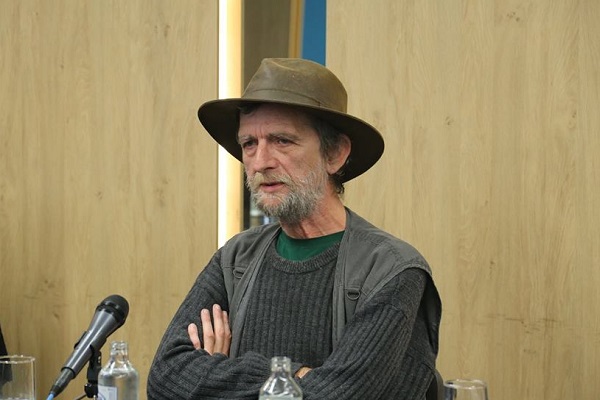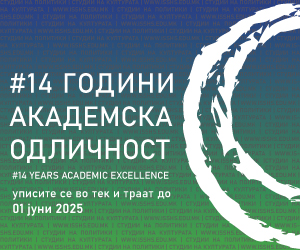“I learned the identity issues through the filter cigarettes ‘Yugoslavia’, the first cigarettes in Yugoslavia…After their production was cancelled, the filter cigarettes ‘Oriental’ came out, with the same visual integrity, the same box, the same color, the same graphics and the same quality or lack of quality…I immediately switched to ‘Oriental’, and to be honest, I didn’t like the name very much, but the changed name didn’t bother me too much”, stated journalist Zvezdan Georgievski at the panel discussion “Losing identity or…?” that was organized by CIVIL – Center for Freedom. .
“When does a person really lose his identity? When we bury him at a graveyard, or maybe during his illness when his physical and mental state change inevitably along with his character? Or, perhaps, his identity survives even after his death, through tales, writings or records about him? And what connection does the state, the nation and ethnic affiliation have with our inevitable biological disappearance?’, were the questions that Georgievski raised at the panel discussion.
He compared the filter cigarettes “Yugoslavia” with their replacement “Oriental”.
“Regardless of the name, I called the cigarettes filter ‘Oriental’ until the end filter ‘Yugoslavia’ and when I would go to buy them I asked for ‘Yugoslavia’ cigarettes and there never was any confusion between the seller and me. He always gave me ‘Oriental’, or he would say – ‘We received filter Yugoslavia’ and would give me a box of ‘Oriental’…For that smoker’s identity another thing was much more important than the name, and I started thinking what is that other thing that made me belong to the filter ‘Yugoslavia’ cigarettes. It was probably that culture of smoking and that tradition to light precisely that cigarette and to have that smell. Translated into a national or collective identity, culture and tradition are probably much more important for one’s affiliation, that the name itself”, said Georgievski.
“Ultimately, even though it might sound like a heresy, I think that even the language is not that important for the identity as is the culture, the traditions…The question isn’t how we will preserve our language, but how we will promote our own culture”, considers Georgievski.
“Why would I want, for instance, to share the values of the state of Macedonia. Those romantic nationalism views, the land where you were born is – your homeland. I was born in Slovenia, and apart from the fact that I was born in Slovenia, I have no special attitude towards that country, that is, I have the same one like I do towards other countries. Why should I have a special attitude towards Macedonia? And in any case, I declare myself as a Macedonian, I try to live decently in this country, which means that I am trying to provide decent conditions also for other people around me to live and to create a decent place…I think that we should deal more with a functional connection between people based on some completely other interests that will be material and spiritual and ones that will ensure a better life”, stressed Georgievski.
The conversation with journalist Zvezdan Georgievski is part of the project “Losing identity or…?”, which CIVIL – Center for Freedom is implementing in cooperation with the Heinrich-Böll Foundation from Germany. The views of about a dozen experts and creators of public opinion about the identity and social-political issues related to the process of overcoming the Macedonian-Greek name dispute will be published in the following days on CIVIL’s media platform. So far, the conversation with Ljubco Georgievski has been published, one of the founders of VMRO-DPMNE and current President of VMRO-People’s Party. The views and analyses on what is being gained and what lost with the Prespa Agreement will also be published in the printed publication in December.
Dehran Muratov
Camera: Аtanas Petrovski
Editing: Arian Mehmeti
This post is also available in: Macedonian





